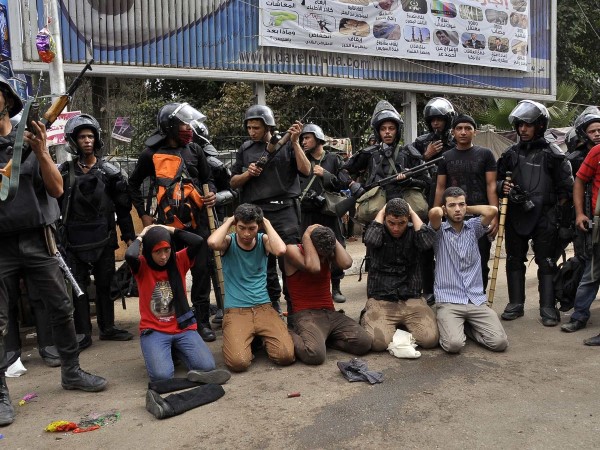A STATE of emergency was declared in Egypt last August 14 as the clash between the military and the Muslim Brotherhood continued to escalate. Two days after the declaration, more than 200 people were reported dead in a “day of rage” called for by the Muslim Brotherhood, Egypt’s largest and oldest Islamist organization.
The crackdown followed the government’s deposition of President Mohamed Morsi, a member of the Brotherhood, last July.
The interim government, led by Prime Minister Hazem el-Beblawi, is moving for the legal dissolution of the Brotherhood. The Brotherhood’s top leader, Supreme Guide Mohamed Badie, was arrested last August 20 and majority of the group’s leaders are now incarcerated.
Divided stand
After ousting dictator Hosni Mubarak in 2011, Egypt fell under military rule for more than a year. In June 2012, Morsi won the country’s first democratic elections, only to be unseated following state rule and economic instability.
According to Political Science Department lecturer Richard Heydarian, to say that Egypt is divided is an understatement. “What happened was that basically Egypt became a war between the military… and the organized Muslim Brotherhood guys, and now you have the genocide between those two sides.”
“The fundamental problem in Egypt,” said Heydarian, “[is] the inability of different factions to find a common ground to resolve their problems… It’s a maximalist, all-confrontational situation.”
Tarek Chelaifa, an International Business Bachelor and foreign exchange student from Tunisia, echoed this sentiment. “I think there’s a deep sense of lack of compromise, a lack of understanding as well,” he said, adding that people tend to bipolarize conflicts.
Across the Arab world
This latest development in Egypt is but one of the Arab regions’ continuing uprisings, collectively known as the Arab Spring. The wave began in December 2010 with the self-immolation of Tunisian street vendor Mohamed Bouzazi over apparent injustices dealt by the government. This sparked unrest throughout the Arab world, resulting in the collapse of several regimes, including those in Egypt, Tunisia and Yemen.
The Arab Spring was originally hailed as the answer to the decades’ long dictatorships in the Middle East. However, while it proved successful in ousting dictators, violence has remained. Even Tunisia, often heralded as the Arab Spring’s success story, suffers from social unrest: With the assassination of leftist politician Mohamed Brahimi, opposition has been calling for the Islamist Ennahdha government to resign.
Despite a promising start after the relatively quick overthrow of its dictatorship, Egypt has since experienced the deposition of two presidents in just as many years.
According to Heydarian, the current situation in Egypt is not self-contained; rather, it will have great implications on the future of the Arab Spring. “Egypt is the heartbeat of the Arab world,” he explained. “It is the largest Arab country, therefore anything that happens in Egypt will have reverberations across the Arab region… [The current violence in Egypt] will definitely extinguish the excitement that was generated by the 2011 uprisings.”
“What Egypt does, what Tunisia does, is deeply surveyed,” Chelaifa said. “[In Tunisia,] we of course look at what Egypt does. We tend to benchmark, sometimes un-benchmark, what they do.”
He also noted that actions in Syria affect his country as well. The latter is currently embroiled in a civil war between the government headed by President Bashar al-Assad, and the opposition, the Free Syrian Army.
According to Heydarian, the conflicts ought to be internal. “Unfortunately, what’s happening is that Egyptian people and political parties are not given the right and space to solve their problems on their own because there’s too much interference from outside,” he said, citing the United States and Saudi Arabia as some external parties.
He added, “It’s not only about them solving their own problems, but also them having that breathing space for reflection and coming together and having that kind of discussion.”
Worse before better
“I’m sometimes very afraid, honestly,” Chelaifa admitted. “I sit up at four o’clock in the morning, I call my friends, I panic… But at the same time it’s exciting, because before, everything was the same.”
He asserted that the situation in these countries, although unpredictable, is normal and necessary. “I think people tend to believe that revolutions go, ‘Somebody’s ousted, everybody’s happy, and things are going to get better.’ It never happens that way. It actually gets worse. But I think it’s a necessary means to evolve to a more stable change.”
“We have never had a revolution that was essentially peaceful,” said Heydarian. “So if you look at history and the bigger picture, what’s happening across the Arab world is completely natural… There is no guarantee towards success in revolutions. There will always be reversals, but at the same time it doesn’t say that just because there are some reversals, it will mean that they would also be permanent.”
“Democracy takes time to learn,” Chelaifa added. “People at the beginning thought that democracy meant complete and utter freedom to do whatever you want. It is about freedom—freedom of speech, freedom of rights—but sometimes it’s about acknowledging other people’s rights.”




